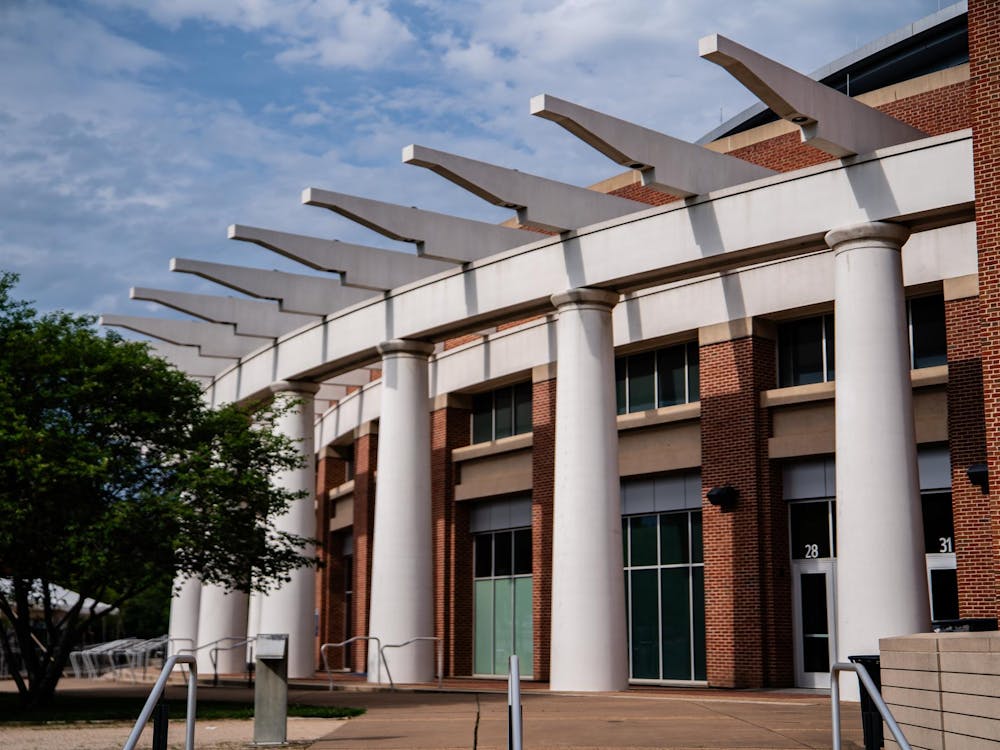Following a joint meeting with the Commission on the Future of the University Monday, Faculty Senate members gathered yesterday to further discuss six newly introduced initiatives and what kind of faculty involvement they will require.
Faculty Senate Chair Edmund Kitch started by opening a discussion about Monday’s presentation of the six cross-campus initiatives, which include diversifying the University’s faculty, improving higher education instruction, improving academic departments’ access to new technology, incorporating more high-level computing systems into faculty resources, better connecting faculty members from different fields through technology, and building programs to make University students global students. He cited some concerns about the projects’ lack of emphasis on an outcome of excellence.
In response, University Provost Arthur Garson said the true heart of the initiatives lies not just in excellence but in reaching for levels beyond excellence. “What we would hope is that the six different initiatives that we presented are about [being] outstanding at the next level along the way,” Garson said.
Garson gave a detailed account of how many of the programs can be put into place, noting that some have more immediate priority. He explained faculty enhancement programs were particularly important at this time, emphasizing the importance of cultivating faculty excellence. The six initiatives and the motives behind them will provide a positive framework for the University’s future, Garson said.
In regards to the faculty enhancement plans, Kitch encouraged faculty members to use the Faculty Senate as a platform to discuss their concerns with the initiatives and to brainstorm new ways to seek and secure funding for their departments.
One issue that concerned many representatives, particularly College representatives, was the lack of attention to the University’s graduate studies in the initiatives.
“We feel strongly that graduate students are that core of what is necessary to make the University a great [research] university,” College Dean Meredith Woo said.
To improve these graduate programs, she said, the University must focus on diversifying its faculty and enhancing its programs to create global research students.
“If we set [hiring more faculty and enhancing programs] as our goal down the road, there are certain things that we can do in five to seven years to ... raise [funds]”, she said.
Vice President for Research Tom Skalak echoed these sentiments, saying that in order to secure funding for future programs, it will be necessary for faculty members to explore a number of innovative methods and even collaborate with other schools. “We just have to develop those relationships,” Skalak said.
Though faculty members may need to find creative ways to come up with funding for programs, President John T. Casteen, III said the future finances of the University still look relatively stable.
He reassured faculty members that despite the recession, the University is faring well. Casteen emphasized the methods used to cut minor spending, postpone construction projects, meet obligations without layoffs or cutting services, and maintain the everyday functioning of the University. Not having to spend additional funds on searches for new faculty members to fill vacancies is one way the University has been able to save money, Casteen said.
He also noted the possibility that President Barack Obama’s stimulus package may include plans for colleges and universities, in which case additional funds could serve to relieve some of the pressure on state funds. This would be helpful, especially in light of more serious concerns facing the University, Casteen said, such as increased tuition, higher construction and electricity fees, a loss of state funding for the Echols Scholars Program and overall research funding reductions. The endowment has shown effects of the recession but is stable, Casteen explained, adding that, on a good note, the Capital Campaign is doing remarkably well.
“Believe it or not, this campaign is still on time and on target,” Casteen said.
As the search for new revenue sources, such as fundraising, continues, increased involvement from the Faculty Senate and other members of the faculty will be a vital element in determining the University’s future, Casteen noted.
The economic downturn will not stop the University from looking ahead, Kitch said, noting that the economy will eventually stabilize. For the moment, the new initiatives “serve as a focal point for the faculty and administration to be working along,” Kitch said. “We are on the way.”






